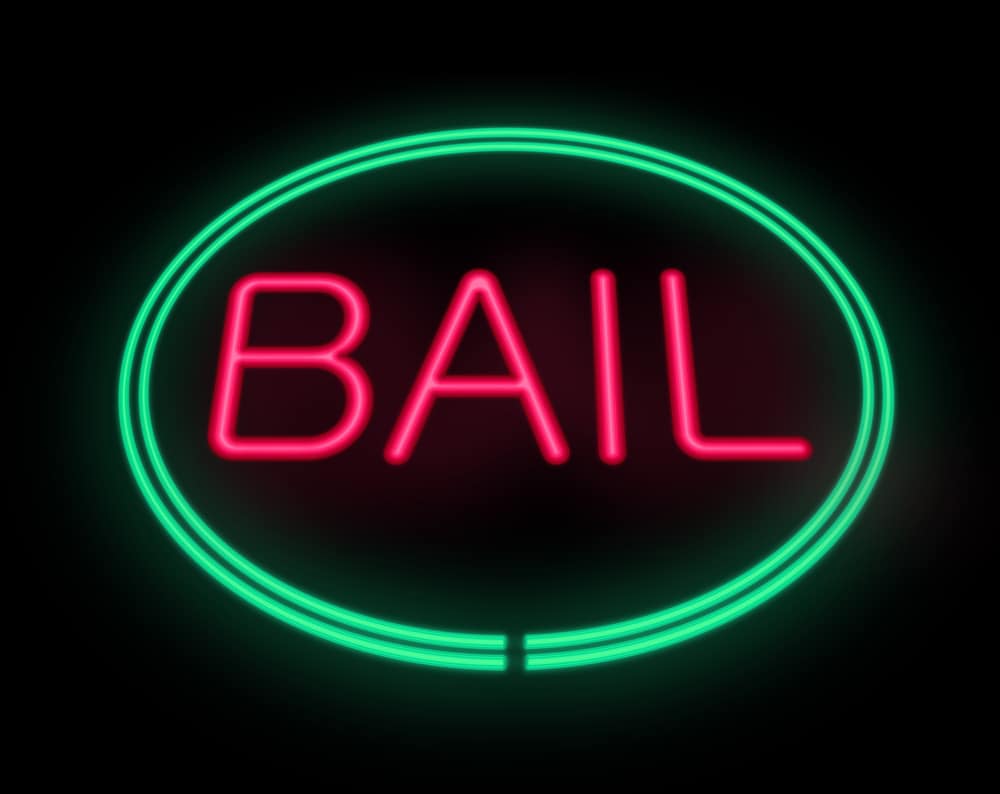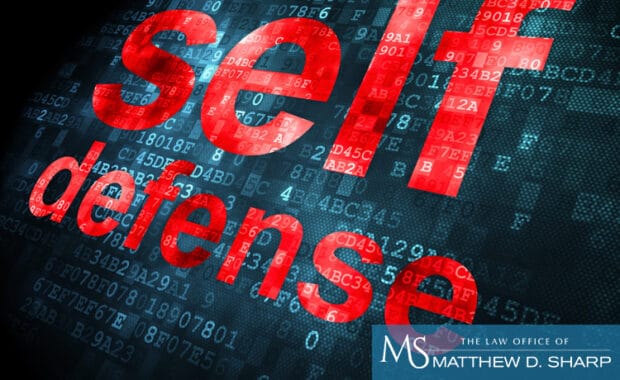When a citizen is arrested, Texas law enforcement schedules his or her first court appearance within 48 hours of arrest. During the initial appearance, the individual is arrested, identified as a defendant, and informed about the availability of bail.
Bail is a form of payment made on behalf of the defendant in exchange for his or her freedom until the final resolution of the case.
Have you or a loved one jumped bail?
Contact attorney Matthew Sharp for a consultation
How Does a Bail Bondsman Become Involved in the Defendant’s Case?
The defendant, members of his or her family, or friends may reach out to a bail bond firm or bail bondsman to arrange bail. Bail is arranged in the form of a bond. Bond is typically a certain amount of money–usually, 10 to 15 percent of the face amount of bail–needed to obtain the defendant’s release from custody.
The bail bond firm or bondsman charges a non-refundable fee (usually 10-15 percent of the bail face amount), and/or requires collateral in exchange for arranging the bond. The defendant may elect a co-signer. The bondsman may require the defendant and/or co-signer to present collateral, such as real estate, negotiable securities, or other items of value, in exchange for paying the defendant’s bond.
For instance, a defendant charged with the crime of embezzlement has a bail set at $20,000 by the court:
- This is the amount of money required by the court to release the defendant until his court appearance dates.
- The defendant can’t pay the bail in cash.
- The defendant’s wife contacts a bail bond firm.
- The bail bondsman agrees to pay the defendant’s bond, in this case, 10 percent of the face amount of $20,000.
- The spouse must pledge collateral to secure the bond. She agrees to pledge their residence valued at $200,000.
The bail bondsman returns the money and/or collateral to the signers when the case is resolved. If the defendant jumps bail, the bail bond firm will seize the money and collateral presented by the signers.
What Happens When a Defendant Jumps Bail in Texas?
When the bail bond firm agrees to pay the defendant’s bail, he becomes an asset of the company until the case is resolved. In other words, the court releases the defendant to the supervision of the bail bondsman until the case is resolved.
Because the bail bondsman has advanced the money needed to secure the defendant’s release, it wants to protect its investment. The bail bondsman wants to ensure that the defendant makes each of his court appearances. It doesn’t want the defendant to jump bail. Jumping bail can occur in a variety of ways, including:
- Failure to make a court appearance
- Leave the jurisdiction
- Remain in the jurisdiction, but evade law enforcement and the court
When any of these circumstances occur, the court issues a warrant to arrest the defendant. He is now considered a fugitive. The bond put forth to ensure the defendant’s court appearances must pay the bond.
In our example of the alleged embezzler, when the defendant decides to jump bail, he’s deemed a fugitive. Because the bail bond firm accepted pledged collateral from the defendant’s spouse, the collateral is forfeit. The defendant and his spouse have lost their home to the bonding firm.
In addition to seizing the pledged collateral, the bail bondsman contacts a bounty hunter to bring the fugitive back to court to face trial in Texas.
Why the Bail Bond Firm Hires a Bounty Hunter
Although the police are searching for the fugitive, they aren’t always successful. The bail bond firm hires a bail enforcement agent, also known as a professional bounty hunter, to find the defendant-fugitive. Several bounty hunters may be assigned in the search to bring the defendant back to court.
The bounty hunter starts searching for the fugitive when the court executes the capias, or arrest warrant.
A bounty hunter usually earns 10 to 20 percent of the face amount of the bond. He or she earns the bond on a contingency basis. That is, the bounty hunter only earns the fee (bounty) of the fugitive is apprehended and brought back to the court.
Can a Bounty Hunter Arrest a Texas Defendant?
Yes, the bounty hunter is permitted to make an arrest when certain conditions are met. Police officers, licensed private investigators, and commissioned security officers (e.g. those employed by a licensed guard agency) are allowed to apprehend fugitives in Texas.
A bounty hunter is considered a licensed private investigator in the state of Texas. He or she must complete the state requirements to become a licensed bail enforcement agent.
What Authority Does a Bounty Hunter Have in Texas?
Bounty hunters are often portrayed in television and movies as highly assertive individuals motivated to make money at all costs.
In reality, the laws of Texas forbid bounty hunters from crossing legal lines, such as:
- Searching for the fugitive without the bonding company’s express written authorization
- Wearing a uniform, badge, or shield that leads others to believe the bounty hunter is a government employee, police officer, or federal agent
Bounty Hunters Cannot Use Excessive Force
The law says that excessive force happens when an individual’s constitutional rights are violated. For instance, beating a person in order to subdue him is an example of excessive force.
If a bounty hunter enters the defendant’s resident without his or her permission and uses reasonable force to arrest the defendant, this is permitted by law. However, if the bounty hunter uses excessive force, such as hitting or kicking the defendant to make the arrest, this may result in the bounty hunter’s arrest for assault and/or battery.
Potential Problems with Bounty Hunters
The licensed Texas bounty hunter must use care when tracking down a defendant wanted for jumping bail. He or she can get into lots of trouble for careless or reckless behavior in the pursuit of the fugitive. In addition, the bounty hunter must take special care to positively identify the fugitive.
In Caballero v. Aamco Bail Bonding Co. (1998), a bounty hunter misidentified a woman for a defendant-fugitive who had skipped bail. The woman, Ruth Garcia, was allegedly beaten by the bounty hunter. She miscarried as a result. The bail bond firm was looking for a defendant named Betty Caballero. Ms. Garcia sued the government. Eventually, the case was heard by the U.S. Supreme Court.
The court determined that the bonding firm and its bounty hunter weren’t engaged by the government. Therefore, the government could not be held responsible for Ms. Garcia’s troubles.
Tracking Down Texas Criminals
When a defendant decides to jump bail, he or she often place themselves—and those who committed to pay the bail—at risk:
- If cash was paid, the defendant or his or her co-signer won’t receive a return of funds.
- Police are put in search of the defendant-fugitive.
- If a bonding firm paid the defendant’s bail, the bail bondsman wants a return of the investment.
- In addition to police employed in tracking down the defendant, the bail bondsman is likely to hire a bounty hunter.
- The bounty hunter receives a bounty when and if the defendant is captured and brought back to court. He or she accepts to perform these services on a contingency basis.
- The bounty hunter must physical arrest the defendant-fugitive to collect the bounty.
- The bounty hunter is permitted to travel through Texas or the United States to find the defendant.
- The bounty hunter is prevented from traveling to other countries to find the defendant.
- The bounty hunter can’t use excessive force in the act of making the arrest.
- The bounty hunter must take care to arrest the specific defendant who jumped bail: he or she must be careful in pursuit of the fugitive.
A defendant who made the decision or mistake to jump bail may decide to contact his or her attorney. The criminal defense attorney may be able to negotiate a return of the client to the court. If this happens, the bounty hunter won’t receive any portion of the bond because he or she was unsuccessful in returning the defendant fugitive to court.
Have Questions about Bail Bonds? Contact an Experienced Criminal Defense Attorney in Houston, TX
Standing trial for a crime is a difficult moment in any person’s life. If you or someone you love has been accused of a crime, or if you made the decision or mistakenly jumped bail intended to keep you free until required appearances in court, you need an experienced criminal defense attorney to represent you as soon as possible.
Contact The Law Office of Matthew D. Sharp at 713-868-6100 for an initial case evaluation now.






